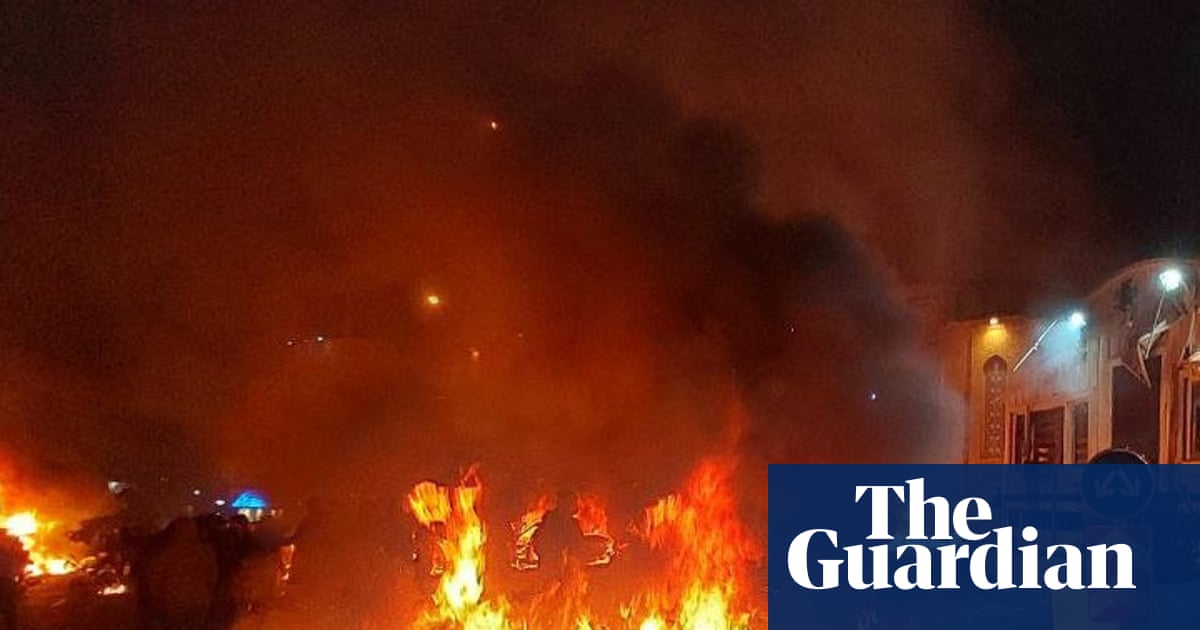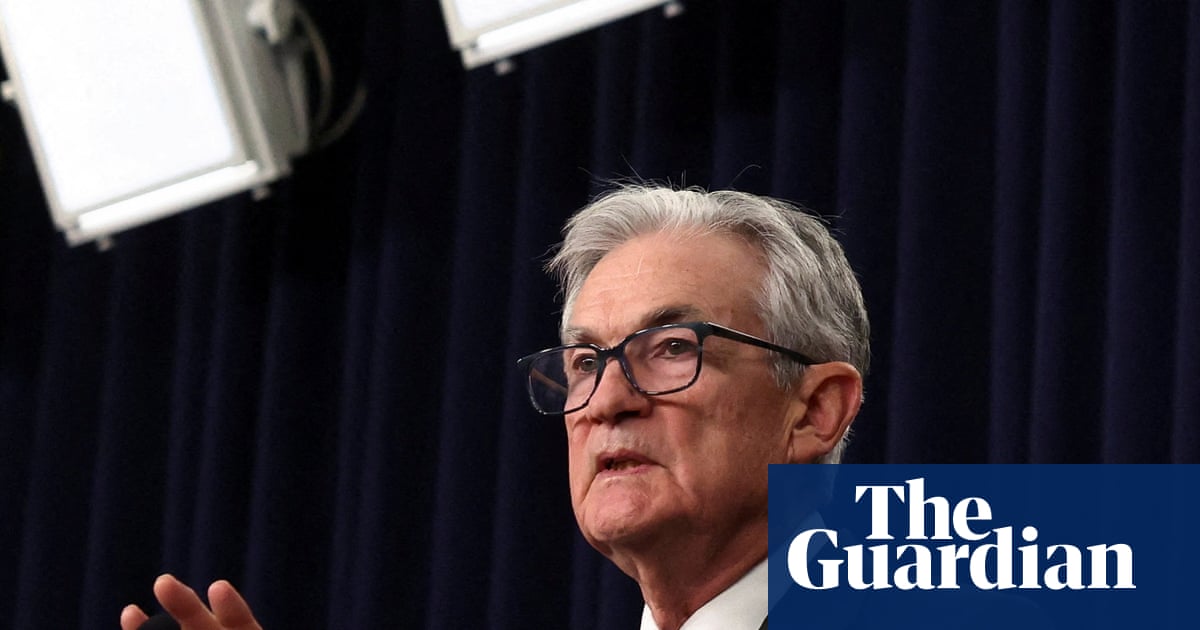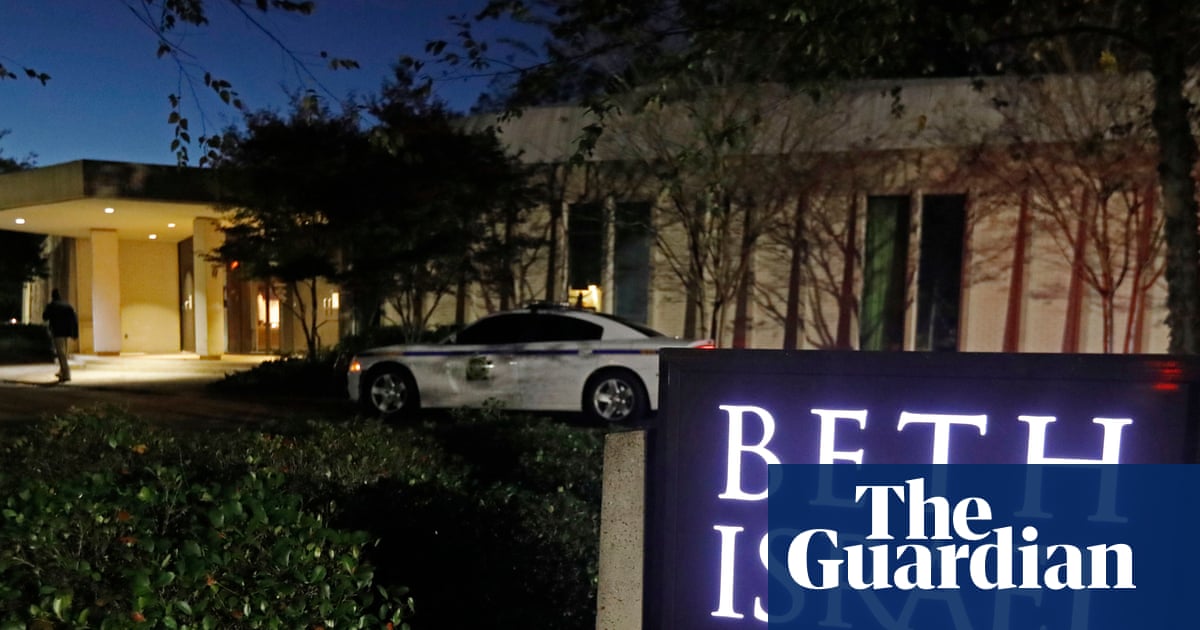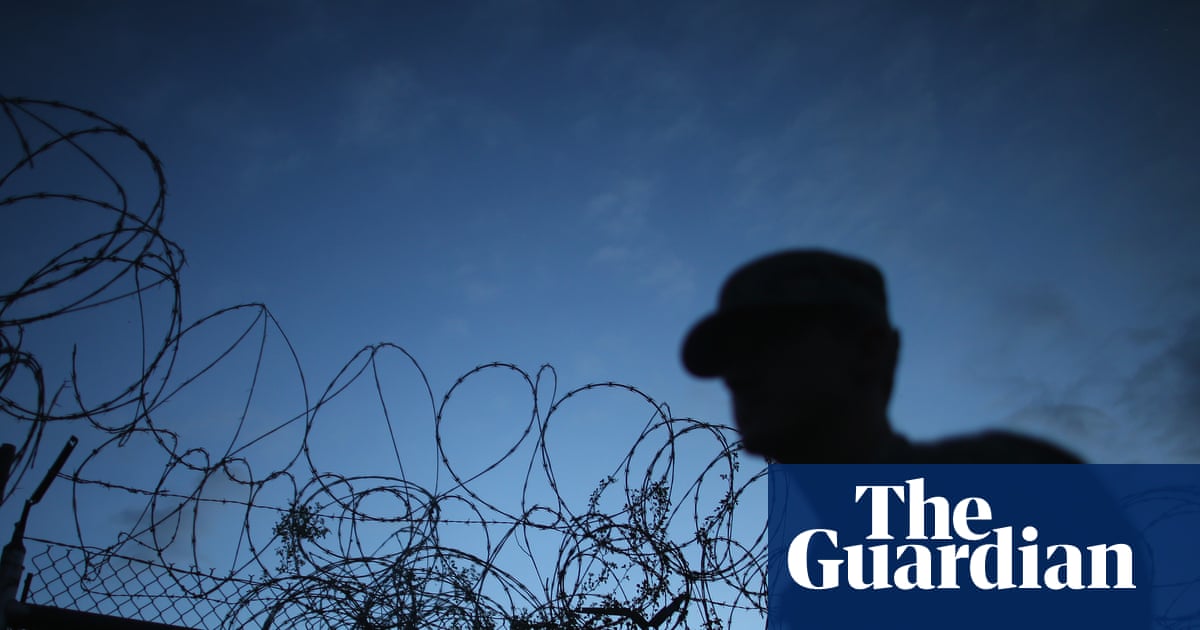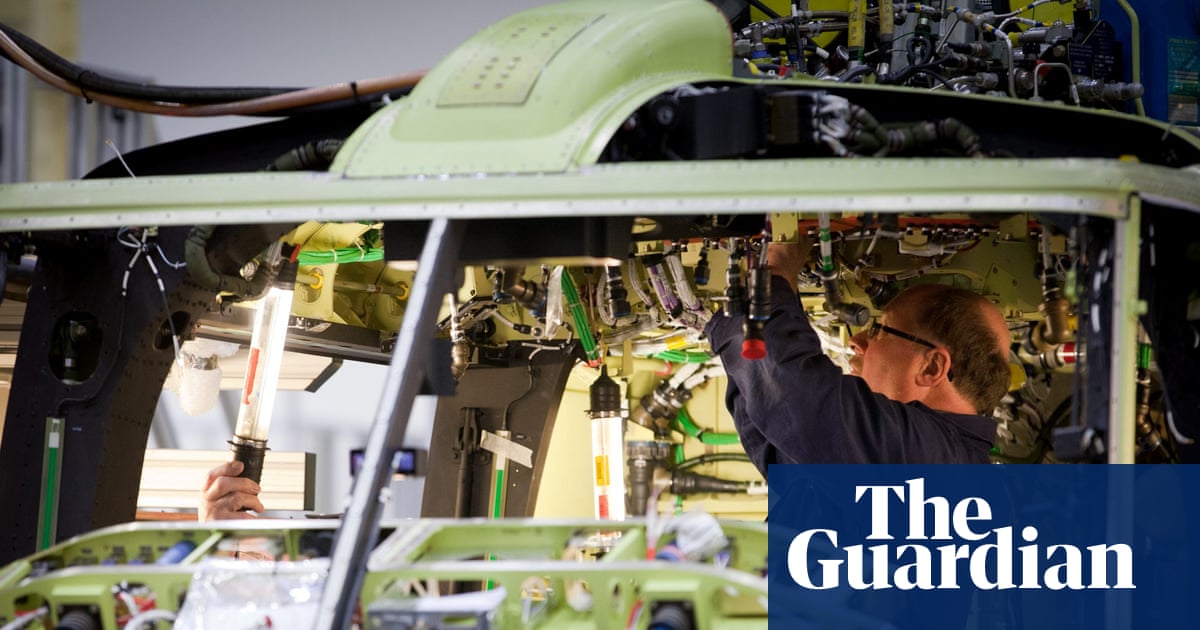Tens of thousands of Filipinos took to the streets on Sunday to protest against government corruption after it was alleged that taxpayers have lost billions of dollars to bogus flood relief projects.
Students, church groups, celebrities, and citizens from different political camps filled the streets in Manila and other cities.
Lawmakers and officials are alleged to have pocketed huge kickbacks in exchange for contracts, while crucial projects intended to protect the country from flood damage have not materialised.
Estimates by the Philippine government suggest that the country’s economy may have lost as much as £1.48bn over the last two years from corruption in flood control projects. Greenpeace has estimated the cost is even greater, saying more than £13bn was siphoned off from climate-related projects in 2023.
The allegations, which have rocked the country, first emerged in July, at a time when monsoon rains and storms had inundated towns and cities, causing misery for millions. The Philippines has an average of 20 tropical cyclones each year, making it one of the most vulnerable countries to natural disasters.
“Our purpose is not to destabilise but to strengthen our democracy,” Cardinal Pablo Virgilio David, the head of the Catholic Bishops’ Conference of the Philippines, said in a statement, calling on the public to demand accountability.
Protests were largely peaceful, though police arrested 72 people, including 20 minors, in two separate incidents.
At least 39 officers were injured, and a trailer that was being used as a barricade was set ablaze, according to a spokesperson. Maj Hazel Asilo told AFP that it was unclear whether those arrested were “protesters or just people who are causing trouble”.
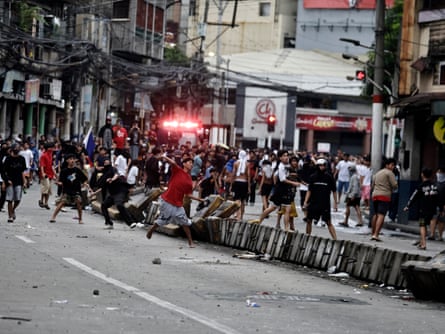
A morning demonstration at a park in Manila drew nearly 50,000 people, according to city estimates, while thousands more joined an afternoon rally at the capital’s EDSA thoroughfare.
“They are draining the people’s money while citizens suffer from floods, their homes being swept away, while officials ride private planes, live in mansions,” Manuel Dela Cerna, 58, told AFP.
Protesters have called for misappropriated funds to be returned, and for those implicated tobe jailed.
The protests echo outrage over alleged government corruption and inequality elsewhere in Asia, including in Nepal, where a gen Z-led protest movement toppled the government of Nepal this month, and Indonesia, where protests recently erupted over privileges given to lawmakers.
President Ferdinand Marcos Jr revealed the flood-control corruption scandal in his annual state of the nation address, and later established an independent commission to investigate the allegations.
In a separate inquiry in the senate, the owner of a construction company accused nearly 30 lawmakers and officials of taking cash payments, in televised testimonies that have gripped the country. Past TV interviews given by the owner’s family, showing their luxurious lifestyle, have also resurfaced, fuelling public anger.
Marcos Jr has sought to placate the public, expressing support for the protests.
“Do you blame them for going out on the streets?” he asked reporters at a press conference this week. “If I weren’t president, I might be out in the streets with them.
“Of course, they are enraged. They are angry, I’m angry. We should all be angry, because what is happening is not right.”
Sunday’s protests were held on a historically significant date: on 21 September in 1972 president Marcos’s father and namesake, the late dictator Ferdinand Marcos, imposed martial law. He held on to power for 14 more years, and is accused of plundering as much as $10bn.
Marcos Jr has promised that inquiries into the flooding scandal would spare “no sacred cows”.
The senate president, Francis Escudero, and house speaker, Martin Romualdez, Marcos Jr’s cousin, have stepped down in the fallout from the scandal.

 3 months ago
92
3 months ago
92
